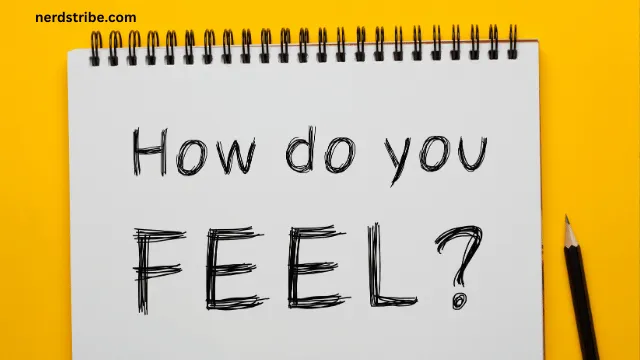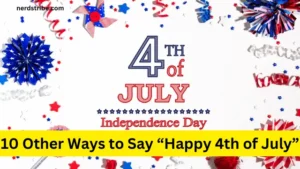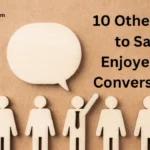In our fast-paced digital world, a simple greeting like “I hope you are doing well” can often feel like a necessary formality. Yet, the reality is that greetings are our first opportunity to establish a genuine connection and set the tone for deeper conversation.
Whether it’s a casual check-in with a friend or a formal message to a colleague, the words we use can have a lasting impact. While “I hope you are doing well” serves its purpose, expanding our vocabulary can add warmth, personality, and sincerity to our conversations.
By diversifying how we express concern or well-wishes, we demonstrate that we care on a deeper level, rather than simply relying on the same familiar phrases. This article will introduce 10 alternative ways to express the same sentiment, each suitable for different situations and relationships.
Exploring these alternatives will not only elevate your communication skills but also help you connect with others in more meaningful ways. Whether you’re writing an email, sending a text, or engaging in a face-to-face conversation, these varied expressions can transform a simple greeting into something more impactful.

Contents
- 1 1. “How are you holding up?”
- 2 2. “I hope things are going smoothly for you.”
- 3 3. “Wishing you all the best.”
- 4 4. “I hope you’re having a wonderful day/week.”
- 5 5. “I hope you’re enjoying your day/week.”
- 6 6. “I trust you are doing well.”
- 7 7. “I hope you’re happy and healthy.”
- 8 8. “Sending you good vibes.”
- 9 9. “I hope you’re having a productive day.”
- 10 10. “I was thinking of you and wanted to see how you’re doing.”
- 11 Conclusion
- 12 FAQs
- 12.1 Why should I avoid saying “I hope you are doing well”?
- 12.2 Can these phrases be used in professional settings?
- 12.3 How can I make my greeting more personal?
- 12.4 Are there any cultural considerations with these greetings?
- 12.5 Can I use these greetings in emails?
- 12.6 How do I know which greeting to use?
1. “How are you holding up?”
- Nuance: More empathetic, this phrase shows concern, especially during difficult times.
- Example: “I know it’s been a tough week, but how are you holding up?”
- When to Use: Perfect for checking in on someone going through a challenging situation.
2. “I hope things are going smoothly for you.”
- Nuance: A more formal and concise expression of good wishes.
- Example: “I hope things are going smoothly for you at the new job.”
- When to Use: Suitable for professional or formal conversations.
3. “Wishing you all the best.”
- Nuance: A general, positive expression that conveys good intentions.
- Example: “Wishing you all the best for your upcoming presentation!”
- When to Use: Ideal when offering well wishes for someone’s future endeavors.
4. “I hope you’re having a wonderful day/week.”
- Nuance: Specific and personalized, this greeting focuses on the present moment.
- Example: “I hope you’re having a wonderful day so far!”
- When to Use: Casual and friendly, great for everyday conversations.
5. “I hope you’re enjoying your day/week.”
- Nuance: A conversational and informal way to show interest in someone’s current activities.
- Example: “I hope you’re enjoying your week off!”
- When to Use: Best for casual or familiar relationships.

6. “I trust you are doing well.”
- Nuance: Confident and formal, this phrase conveys assurance and professionalism.
- Example: “I trust you are doing well after the recent changes in your life.”
- When to Use: Ideal for formal emails or professional contexts.
7. “I hope you’re happy and healthy.”
- Nuance: Focuses on well-being, both emotional and physical.
- Example: “I hope you’re happy and healthy after your trip!”
- When to Use: Perfect for more personal, caring greetings.
8. “Sending you good vibes.”
- Nuance: A modern, lighthearted way to offer positive energy.
- Example: “Sending you good vibes for your big interview!”
- When to Use: Informal and energetic, best for friends or younger audiences.
9. “I hope you’re having a productive day.”
- Nuance: Professional and focused, this greeting acknowledges someone’s efforts.
- Example: “I hope you’re having a productive day with all your meetings.”
- When to Use: Ideal for colleagues or work-related contexts.
10. “I was thinking of you and wanted to see how you’re doing.”
- Nuance: Personal and thoughtful, expressing genuine care.
- Example: “I was thinking of you and wanted to see how you’re doing after your surgery.”
- When to Use: Best for close friends or family members.
Conclusion
By diversifying the ways you express “I hope you are doing well,” you can make your greetings feel more genuine and personal. Whether you’re offering sympathy, support, or simply checking in, the words you choose can shape the tone of your conversation.
These 10 alternatives will help you connect with others in more meaningful ways and express concern or well-wishes that are thoughtful and sincere. Take the time to experiment with these varied expressions, tailoring them to the context and relationship you have with the person you’re addressing.
By expanding your vocabulary and being more intentional in your communication, you can enrich your interactions and show that you care beyond the typical greeting.
FAQs
Why should I avoid saying “I hope you are doing well”?
While it’s a safe phrase, varying your greetings can add depth, warmth, and sincerity to your communication, making it more engaging.
Can these phrases be used in professional settings?
Yes, many of these alternatives, such as “I trust you are doing well,” are formal and appropriate for professional emails and workplace interactions.
How can I make my greeting more personal?
You can add specific details related to the person’s life, like “I hope you’re enjoying your new project” or “I was thinking of you.”
Are there any cultural considerations with these greetings?
Yes, greetings can vary based on cultural context. Be mindful of the relationship and context when choosing the most appropriate greeting.
Can I use these greetings in emails?
Absolutely! These alternatives work well in both formal and informal email contexts, making your messages feel more personalized.
How do I know which greeting to use?
Consider the tone of the conversation and your relationship with the person. Formal greetings are best for professional situations, while more casual ones suit friends and family.








